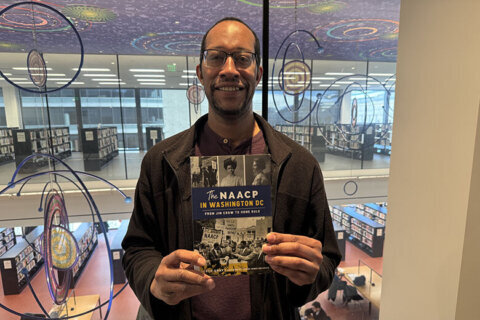Weeks after members of Congress rejected D.C. lawmakers’ plan to change how the city handles crime in its courts, the District is back to operating under a century-old criminal code. Now, lawmakers and the mayor’s office are debating over what do to next.
Last month, Congress voted to block new D.C. crime laws, overruling the city government as lawmakers in both parties expressed concern about rising violent crime rates in cities nationwide. Mayor Muriel Bowser has said there is disagreement over only 10% of the District’s Revised Criminal Code.
“I think part of the reason that resolution unfortunately passed is that there was a misleading narrative about what this bill did and did not do,” said Jinwoo Charles Park, director of the Criminal Code Reform Commission that worked to draft the revisions.
During his oversight hearing with Council member Brooke Pinto, Park noted that many members of Congress who called the bill “light on crime” weren’t aware that D.C.’s revised criminal code was based on the existing criminal penalties in their states.
“The provisions you may have concerns about in the RCCA are actually squarely in the mainstream, and so our penalties are actually even higher than many of the states of members of Congress who are voting to block our bill,” Park said.
Park told Pinto the commission stands ready to rework the code, but the mayor’s proposed 2024 budget doesn’t fund its future.
Deputy Mayor for Public Safety Lindsey Appiah said in her oversight hearing with Pinto on Wednesday that the administration considers the commission’s work complete.
“We can’t defer the responsibility of policymaking to a commission. They made the recommendations. It’s now on us as the executive and the legislative branch to arrive at a piece of legislation,” Appiah said.
But Pinto finds the administration’s decision to sunset the commission problematic.
“It’s not because we need them to write the law and take the place of our jobs, but we need their expertise to think about how we can accomplish our policy goals within the larger framework of a clear and concise and consistent code,” Pinto told Appiah.
Other members of the Reform Commission, which contributed to the decadelong work of rewriting the code, noted that there are still two years before it’s set to be adopted, and therefore, gives them time to work and meet the expected deadline, despite the Congressional rejection of the bill on its first round.
“Let’s get to work. I mean, if the council and the mayor are ready to prepare alternatives, knowing that the vast majority was good to go, and we are really tailoring and thinking about a small subset, let’s talk about those. I think the CRC, I’m sure, is poised to reengage with elected leaders and its members to dig right in,” said Misty Thomas, executive director of the Council for Court Excellence.
The commission’s fate is still unclear. Pinto’s office did not return WTOP’s request for comment on whether it will be determined through funding in the fiscal year 2024 budget that is currently under review by the council, or if there will be a separate legislative debate on its future work and role in crafting policy.








